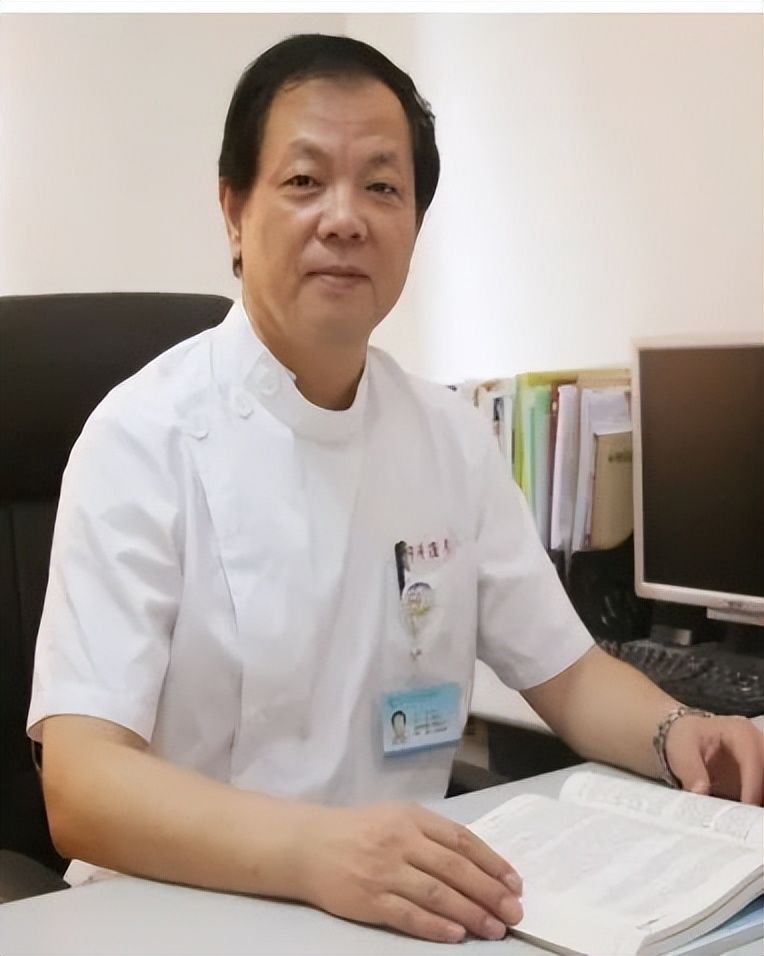內容目錄
Malignant tumors have brought great suffering to patients and their families, and also caused great burdens to the society. The health and survival of patients with malignant tumors need to be accomplished by the cooperation of multiple professional fields in the whole society. Psychosocial support is an integral part of this. In order to promote the development and expansion of psychosomatic integrated medical services in the oncology department, on July 16, the 2022 CCPIM Psychosomatic Oncology Forum hosted by the China Cancer Foundation and the expert tour of the China Cancer Foundation Oncology Psychology Collaborative Group was held online.
Comorbid depression in cancer patients

Peking University Cancer Hospital Tang Lili
Related studies show that the prevalence of depression at 6 months and 12 months after cancer diagnosis is close to 13%. Cancers with high incidence of depression include lung cancer, gynecological malignant tumor, breast cancer , colorectal cancer and urinary tract malignancies.
Patients with depression prior to cancer diagnosis had worse overall survival, which was associated with less aggressive treatment options. The increased proportion of suicidal ideation in cancer comorbid depression is also an important factor threatening the survival of cancer patients.
The diagnosis of depression with cancer should adopt the concept of depression spectrum disorder, including: depression, persistent depressive disorder, adjustment disorder, loss of mind Wait.
Depressive symptoms overlap with symptoms caused by tumors and treatment. It is recommended to consider the diagnosis based on actual clinical needs.
Treatment of cancer comorbid depression must consider the interaction between antidepressants and antineoplastic drugs, and the role of antidepressants in cancer patients. off-label medication in .
For example, there is an interaction between serotonin reuptake inhibitors and breast cancer endocrine therapy drugs, which should be used with caution; and mirtazapine is an antidepressant The drug can also improve appetite in cancer patients; olanzapine, used in combination with treatment-resistant depression, can also improve nausea and vomiting in cancer patients.
The current status of the treatment of depression with cancer comorbidity is still not ideal, and more professionals need to pay attention to this field. Give timely assessment and effective intervention.
Psychosomatic Medicine—An Important Discipline Lost in the Cracks

Tongji University Lu Zheng of Tongji Hospital Affiliated
“Psychosomatic medicine” can be called an important subject lost in the cracks. In a broad sense, psychosomatic medicine is the study of how psychological, biological, and social factors interact between human health and disease, and the occurrence, development and outcome of diseases are related to psychosocial factors.
Since psychosomatic medicine was proposed by German scholars in 1818, it has developed into a well-established discipline over the centuries. my country is also paying more and more attention to psychosomatic medicine. In 2016, the former National Health and Family Planning Commission and other departments jointly issued the “Guiding Opinions on Strengthening Mental Health Services”, and various localities have also issued corresponding supportive policies.
The study found that general hospitals are the main battlefield for the diagnosis and treatment of mental diseases, and a considerable number of prescriptions for psychotropic drugs come from non-psychiatric outpatient clinics, so we need to further Improve the development of psychosomatic medicine in general hospitals.
In order to improve the current situation of insufficient diagnosis and treatment of psychosomatic diseases in my country, we need to learn advanced psychosomatic medical techniques from developed countries, including: doctor-patient communication training, Balint group training, etc.
Psychosomatic medicine is the cornerstone of clinical medicine and the foundation of the holistic view of medicine and the concept of medical care. In the future, the medical field will incorporate more new technologies or diagnosis and treatment models. On the basis of scientific and technological development, the practice of psychosomatic medicine can be implemented reasonably and optimally to allocate limited medical and human resources to meet more humane and individual needs.
Here, we also particularly look forward to the rapid development of psychosomatic oncology in my country, bringing real benefits to the families of cancer patients.
Exploration of early supportive care for tumors

Peking University Cancer Hospital Zhang Xiaotian
The Multinational Society for Supportive Cancer Care (MASCC) defines supportive cancer care as: prevention, treatment of the tumor itself and adverse reactions of anti-tumor therapy, including the diagnosis, treatment and Treatment of all adverse reactions, physical and psychological symptoms in the whole process after treatment.
Professor Shen Lin’s team from the Department of Gastrointestinal Oncology, Peking University Cancer Hospital, together with the team of Professor Tang Lili from the Department of Rehabilitation and the team of Professor Fang Yu from the Department of Nutrition, launched a Early interdisciplinary supportive care study in metastatic esophagus and gastric cancer, published in the journal Clinical Oncology in 2021. The results of the study showed that early nutritional and psychological support therapy combined with standard first-line chemotherapy compared with chemotherapy alone could significantly prolong the survival time of patients with advanced esophagus and gastric cancer, prolong the overall survival time by nearly 3 months, and significantly improve the nutritional status, emotional and cognitive functions of patients. Therefore, an early multidisciplinary supportive care model should be established for patients with advanced esophagus and gastric cancer.
The occurrence of cachexia should be paid attention to in supportive care. All tumor patients should be screened and evaluated for cachexia. Once cachexia is diagnosed, anti-tumor therapy should be used. , symptom management, nutritional management, psychology, exercise and other multi-modal treatment to achieve the best effect. Nutritional interventions should be carried out throughout the course of the tumor, and nutritional screening and assessment should be performed regularly.
Increase patient compliance with multimodal management through psychosocial support, help patients adapt to the current situation, relieve pain, and treat anxiety and depression .
Chronic stress management is of great significance for cancer treatment

Jiang Yu, West China Hospital, Sichuan University
In recent years, domestic psychosocial oncology experts and scholars have conducted a large number of clinical studies, mainly focusing on Informed consent of tumor patients and their families, psychological assessment, psychological intervention, occupational exhaustion of medical staff in oncology.
Basic research related to tumor psychology has become a hot spot, and the impact of chronic stress on tumor progression and treatment efficacy is an important research direction. Relevant progress mainly involves chronic stress increasing the level of norepinephrine in tumor tissue; chronic psychological stress affects breast cancer progression and response to treatment; chronic stress weakens the efficacy of anti-vascular targeted therapy drugs on various tumors ; Chronic stress promotes epithelial-mesenchymal transition of tumor cells; Chronic stress affects the efficacy of tumor immunotherapy, etc.
Chronic stress has been shown to impair mental or physical health and promote disease progression, especially in the evolution of malignancies and in the tumor microenvironment. Remodeling has serious adverse effects. Recent research evidence shows that chronic stress induces tumorigenesis and promotes tumor evolution.
In conclusion, chronic stress management is very important for cancer treatment. The research of psychosocial oncology from clinical to basic is deepening day by day, and it is expected to provide better care for cancer patients.
Psychological care is essential in the comprehensive treatment of malignant tumors

Anhui Medical Cheng Huaidong, Second Affiliated Hospital of University
Disease perception is one of the important concepts in tumor psychology. Patients’ beliefs about the disease can directly affect the patient’s cognitive and emotional responses to the disease, which in turn affects the treatment and prognosis of the disease.
Malignant tumors are greatly influenced by psychological factors. In the previous treatment, doctors only focused on the effect of tumor treatment, ignoring the psychological changes of tumor patients. For a long time, the psychological problems of patients with malignant tumors were ignored.
As the survival time of cancer patients continues to prolong, the importance of cancer rehabilitation becomes more and more prominent. The goal of cancer rehabilitation is to promote cancer patients to better return to their families and society, and to improve the quality of life of advanced cancer patients.
Health psychology plays a vital role in the whole process of cancer rehabilitation. Many patients will have a series of negative disease perceptions after being diagnosed with malignant tumors. Negative disease perceptions will reduce the patient’s immunity, reduce the quality of life, and increase the risk of adverse outcomes. The more negative the disease perception of cancer patients, the worse the quality of life in the future. .
Psychological related research in cancer rehabilitation center shows the importance of psychological factors of patients and the integration of psychological care of patients into comprehensive treatment of malignant tumors necessity in the model.
Practical exploration of breast cancer patient partner communication workshop

Affiliated to Fudan University Feng Wei, Cancer Hospital
During the treatment of breast cancer patients, the support and companionship of their partners is particularly important. They not only need to take care of the patients, but also bear heavy family and economic responsibilities . However, after treatment, the patient’s self-confidence decreased due to physical changes and treatment pain, and the original communication mode between husband and wife encountered new challenges and tests.
Since its establishment, our department has been paying attention to the mental health of patients and their families, exploring and designing a communication workshop for partners of breast cancer patients, focusing on Adjust the communication mode of patients and partners to improve the emotional experience, quality of life and well-being of patients.
The workshop integrates theories of family therapy, music therapy, group therapy, etc. The communication program is composed of five modules. Encourage partners to communicate more, eliminate communication blind spots and misunderstandings, and members resonate and receive support in the activities.
During the follow-up six months after the workshop was launched, the participating members generally reported that husbands and wives can empathize more, and family members will actively seek Effective solutions, the family atmosphere becomes more harmonious. It is hoped that this intervention model can be further applied and promoted in the future to benefit more families of cancer patients!